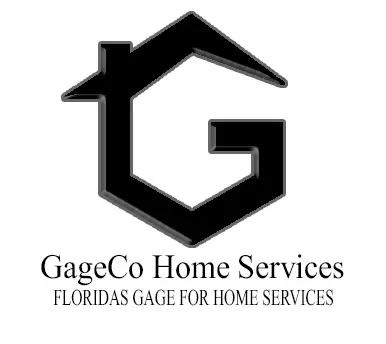Finding a good demolition contractor near me doesn’t have to be a hassle. The key to a successful demolition project lies in selecting the right local services. Here are some quick tips to guide your choice:
-
Research local contractors with a high rating and strong reputation in the community.
-
Check Reviews from previous customers for insights on workers’ professionalism and the quality of results.
-
Personalized Approach: Look for companies that tailor their services to meet your specific needs.
At GageCo Home Services, we pride ourselves on providing a personalized approach to all your demolition needs. Whether it’s a complete teardown or a selective interior project, our team is committed to ensuring a seamless and stress-free experience. With our focus on quality and customer satisfaction, we build long-lasting relationships with our clients, delivering exceptional results every time.
Getting the right demolition contractor is just a step away. Choose wisely and watch your project transform smoothly with GageCo Home Services.

Why is Demolition So Expensive?
Demolition costs can seem high, but there’s a reason for every dollar spent. Let’s break it down:
Equipment Rental
Demolition isn’t just about swinging a sledgehammer. It requires specialized equipment like excavators, bulldozers, and sometimes cranes. Renting this heavy machinery is costly. Plus, operators need to be trained and certified, adding to labor costs.
Hazardous Materials
Older buildings often hide hazardous materials like asbestos and lead. Removing these safely is essential but expensive. Asbestos, for example, requires special handling and disposal procedures to protect both workers and the environment.
Disposal Costs
Once a building is down, all that debris has to go somewhere. Disposal fees for construction waste can add up quickly, especially if hazardous materials are involved. Good demolition contractors prioritize recycling, which can sometimes offset costs but still requires careful sorting and transport.
Safety First
Demolition is dangerous work. Ensuring safety on-site means investing in protective gear, safety training, and compliance with regulations. These precautions are non-negotiable and add to the overall cost but are crucial to prevent accidents.
Understanding these factors helps explain why demolition can be pricey. It’s not just tearing down walls—it’s about doing it safely, efficiently, and responsibly.
How to Quote a Demolition Job
Quoting a demolition job can feel like solving a puzzle. You need to consider several elements to arrive at a fair and accurate price. Let’s dive into the key factors that shape a demolition quote.
Cost Estimate Formula
A cost estimate formula is essential for breaking down the total expense. This formula often includes direct costs, salvage credits, and the volume of material. Each component plays a crucial role in determining the final price.
Direct Cost
Direct costs are the immediate expenses associated with the demolition. These include labor, equipment rental, and disposal fees. For instance, hiring a certified operator for heavy machinery is a direct cost, as is the fee for dumping debris at a landfill.
Salvage Credit
Sometimes, demolition can turn trash into treasure. Salvage credit refers to the value of materials that can be reclaimed and sold. Bricks, metal, and timber might be recycled, offsetting some costs. A good demolition contractor will assess what can be salvaged to reduce expenses.
Volume of Material
The volume of material to be demolished significantly impacts the cost. More material means more time, labor, and disposal fees. Contractors measure this carefully to ensure they account for every piece of debris.
Cost of Production
Finally, the cost of production includes all the logistical and operational expenses. This covers everything from fuel for machinery to safety equipment for workers. Each element ensures that the demolition is carried out efficiently and safely.
By understanding and applying these factors, contractors can provide detailed and transparent quotes. This helps clients understand where their money is going and ensures projects run smoothly without unexpected financial surprises.
Is Demolition in Demand?
Demolition is a vital part of the construction industry, and its demand is steadily increasing. Let’s explore the numbers and trends that highlight this growth.
Market Size
The demolition industry is a significant player in the construction sector. It supports the renovation and redevelopment of existing structures. As urban areas expand and old buildings give way to new developments, the demand for demolition services rises. This growth is evident in both residential and commercial sectors.
Industry Growth
The demolition industry has seen consistent growth over recent years. This is driven by the need for urban renewal and infrastructure development. As cities grow, the demand for space means older structures are often demolished to make way for new ones. The industry is not just about tearing down; it’s about making way for the future.
CAGR
The Compound Annual Growth Rate (CAGR) for the demolition market reflects its robust expansion. A positive CAGR indicates that the industry is not only stable but also thriving. This growth is fueled by increased construction activities and the need for sustainable practices in handling demolition waste.
Construction and Demolition Market
The construction and demolition market is interconnected. Demolition is a precursor to many construction projects, especially in urban areas where space is limited. The market encompasses a wide range of activities, from small residential demolitions to large-scale commercial projects.
The industry’s growth is supported by advancements in demolition techniques and machinery, enabling more efficient and safer operations. This progress also aligns with a growing emphasis on environmental sustainability, as contractors increasingly focus on recycling and waste management.
In summary, the demand for demolition services is rising, driven by urban development and the need for sustainable construction practices. The industry’s growth trajectory and market size underscore its importance in shaping modern cities.
How Profitable is Demolition?
The demolition industry is more than just tearing down buildings; it’s a lucrative business with significant revenue potential. Let’s explore the numbers and factors that contribute to its profitability.
Industry Revenue
Demolition is a billion-dollar industry, with annual revenues reflecting its critical role in construction. The industry’s revenue is driven by both the volume of projects and the complexity involved. Whether it’s a small residential job or a large commercial project, each contributes to the substantial financial turnover of the sector.
Employment Statistics
The demolition industry not only generates significant revenue but also provides numerous employment opportunities. It employs skilled workers who specialize in various aspects of demolition, from planning to execution. The demand for these jobs is steady, as the industry requires expertise in handling equipment and managing demolition projects safely.
Market Comparison
When compared to other sectors within the construction industry, demolition stands out for its unique challenges and profitability. While construction focuses on building, demolition requires careful planning and execution to safely remove structures. This complexity can result in higher project costs, but it also means higher potential profits for contractors who manage projects efficiently and safely.
Profitability
Profitability in the demolition industry is influenced by several factors, including project scale, location, and materials involved. Contractors who can effectively manage costs, such as equipment rental and waste disposal, while maximizing salvage value, often see substantial profit margins. Moreover, the increasing demand for environmentally sustainable practices, like recycling materials, can further improve profitability by reducing disposal costs and generating additional revenue streams.
In conclusion, the demolition industry offers significant profitability potential, driven by strong revenue streams, steady employment, and unique market positioning. Its role as a precursor to construction projects ensures its continual relevance and financial success in the broader construction landscape.
Finding a Good Demolition Contractor Near Me
When you’re on the hunt for a good demolition contractor near me, know what to look for. Whether it’s a residential or commercial project, understanding the services and qualities of local contractors can make your search much simpler.
Tips for Hiring a Demolition Contractor
-
Gather Project Information: Before reaching out, have a clear idea of your project’s scope. This includes the type of demolition needed—like house, bathroom, or concrete demolition—and any specific requirements, such as salvage and demolition or a house strip out.
-
Get Written Estimates: Request at least two to three written estimates from different contractors. This helps you compare costs and understand the market rate for your specific demolition needs.
-
Check the Contractor’s License: Ensure that the contractor is licensed and certified to perform demolition work in your area. This provides assurance that they adhere to local regulations and safety standards.
-
Secure a Written Contract: Once you’ve chosen a contractor, make sure to get a detailed written contract. This should outline the scope of work, timelines, costs, and any other agreed-upon terms to avoid misunderstandings later on.
Services Offered by Demolition Contractors
Demolition contractors offer a range of services custom to different needs:
-
Residential Demolition: This includes the removal of entire houses or specific parts like garages or sheds. It’s crucial for home renovations or rebuilding projects.
-
Commercial Demolition: Involves dismantling commercial buildings or structures. It requires specialized skills and equipment due to the complexity and size of the projects.
-
Interior Demolition: Focuses on removing interior elements such as walls, ceilings, and floors. This service is often used in renovations where the external structure remains intact.
-
Exterior Demolition: Involves tearing down external structures like decks, porches, or even entire buildings. This can include the demolition of concrete elements such as driveways or patios.
Whether you’re looking to strip out a bathroom or demolish a concrete wall, understanding these services can help you find the right contractor for your project. Keep these tips and service offerings in mind to ensure a smooth and successful demolition process.
Frequently Asked Questions about Demolition Contractors
Why is demolition so expensive?
Demolition costs can be high due to several factors. Equipment rental is a significant expense, as the machinery needed for demolition is specialized and costly. Hazardous materials like asbestos and lead also add to the cost, as they require careful handling and disposal by certified professionals.
Additionally, disposal costs can be substantial. The debris from demolition must be transported and disposed of in compliance with local regulations, which involves fees and logistics. All these elements contribute to the overall expense of demolition projects.
How do you quote a demolition job?
Quoting a demolition job involves calculating several components to estimate the total cost. Here’s a simple breakdown:
-
Direct Costs: These include labor, equipment, and materials required to complete the demolition.
-
Volume of Material: The amount of material to be demolished affects the cost. Larger volumes require more labor and equipment time.
-
Salvage Credit: If materials can be salvaged and sold, this can offset some costs. Contractors will assess the potential value of salvaged materials.
-
Cost of Production: This includes overheads like permits, insurance, and administrative expenses.
By considering these factors, contractors can provide a comprehensive quote that reflects the project’s scope and requirements.
Is demolition in demand?
Yes, demolition is in demand and continues to grow. The construction and demolition market is expanding due to increased urbanization and redevelopment projects. The industry’s market size and growth are driven by the need to clear old structures for new developments.
Moreover, the industry’s compound annual growth rate (CAGR) indicates a positive trend, highlighting the ongoing demand for demolition services. As cities evolve and infrastructure needs change, the demand for skilled demolition contractors remains strong.
Conclusion
At GageCo Home Services, we pride ourselves on offering personalized service that sets us apart in the demolition industry. With 30 years of experience, we understand the nuances of each project, ensuring that every task is handled with precision and care. Our commitment to quality means treating every home as if it belonged to our own family, ensuring that our clients receive the best possible service.
Our approach is not just about tearing things down; it’s about building trust and long-term relationships with our clients. We aim to provide a seamless experience from start to finish, focusing on safety, efficiency, and environmental responsibility.
Choosing GageCo means choosing a partner who values your project as much as you do. Our expertise in residential and commercial demolition, combined with our dedication to customer satisfaction, makes us the ideal choice for anyone searching for a good demolition contractor near me.
If you’re ready to start your demolition project with a team that truly cares, contact us today and let us show you the GageCo difference.


